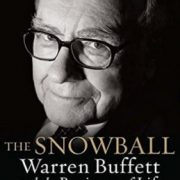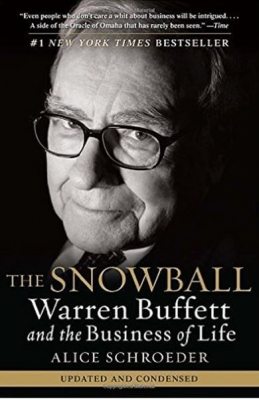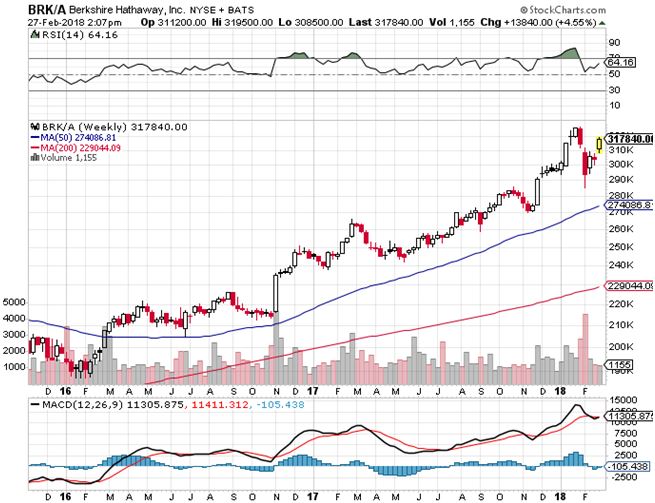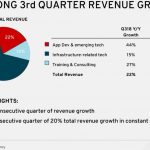About Warren Buffett's Annual Letter to Shareholders
I have been reading Warren Buffet's annual letter to his Berkshire Hathaway (BRK/B) shareholders for 41 years.
During this time, I can't recall reading a single page that did not improve my own trading and investment skills. This years was no different.
Of course, it helps that Warren was a founding subscriber to my own daily newsletter, the Diary of a Mad Hedge Fund Trader.
A few years ago he bought a 5% stake in Bank of America (BAC) right at a multi decade bottom. He says he got the idea while reading a report in his bathtub.
What he omits in public is that it was MY Trade Alert to buy (BAC) call options issued the day before that he was reading.
And what a blockbuster year it has been!
Berkshire increased the share value by a stunning 23.0%. It added a gargantuan $65.3 billion in book value last year.
The market capitalization now stands at an impressive $525 billion.
The shares are not for small timers, as a single one now costs $317,840. Warren has never exercised a share split, viewing it as a needless Wall Street ploy to earn excess fees.
This compares to a 1965 per share market value of only $23.80, and is why the media are always going gaga over Warren Buffet.
If you're lazy and don't want to do the math, that works out to a compound annualized return of an eye popping 19.1%.
This is why guessing what Warren is going to do next has become a major cottage industry (Progressive Insurance anyone?).
Buffet is quick to point out that only $36 billion came from operations, the balance of $29 billion came as a gift from the US government in the form of the December package of tax cuts.
It truly shows the extent to which big business benefited from the bill, which is entirely dependent on borrowed funds.
Thanks to the extreme elevation of share prices 2017 was the first time in many years that Berkshire Hathaway did not make a major acquisition. It says a lot that the best investor in history can't find anything to buy in this market.
As a result, Berkshire is sitting on an eye-popping $116 billion in cash and US Treasury bills waiting for an opportunity, like another market crash.
Warren gave some insight to the cost to Berkshire of the three major hurricanes last year, as insurance is a mainstay of the company's strategy.
The tab came to $3 billion out of an industry wide total loss of $100 billion, putting the conglomerate's insurance operations at an operating loss for the first time in a decade. Buffet expects to make it back this year.
If Hurricane Irma had drifted only a few miles to the east, the industry loss would have doubled to a staggering $200 billion, and many insurance companies would have been pushed into bankruptcy.
I always thought that global warming would be terrible for property and casualty companies. It's not. Instead, it's great news.
The important thing about global warming is not that the temperature is getting hotter or colder. It's that the weather moves.
The end result is that those in parts of the world prone to storms, hurricanes, floods, fires, and other natural disaster pay much higher premiums. But the weather then shifts to other parts of the world that has no insurance coverage.
The higher income and fewer claims is a formula for printing money in Buffet's four major property and casualty insurance companies.
Sometime in the early 1970's, a friend of mine said I should take a look at a stock named Berkshire Hathaway (BRKA) run by a young stud named Warren Buffet.
I thought, "Why the hell should I invest in a company that makes sheets."
After all, the American textile industry was in the middle of a long trek toward extinction that began in the 1920's and was only briefly interrupted by the hyper prosperity of WWII.
The industry's travails were simply an outcome of ever rising US standards of living, which pushed wages, and therefore costs, up.
It turned out that Warren Buffet made a lot more than sheets. However, he is not a young stud anymore, just an old one, like me.
Since then, Warren's annual letter to investors has been an absolute "must read" for me when it is published every year.
It has been edited for the past half century by my friend, Carol Loomis, who just retired after a 60-year career with Fortune magazine. (I never wrote for them because their freelance rates were lousy).
Witty, insightful, and downright funny, I view it as a cross between a Harvard Business School seminar and a Berkeley antiestablishment demonstration.
You will find me lifting from it my "Quotes of the Day" for the daily newsletter over the next several issues. There are some real zingers.
I was kind of pissed when Warren bought BNSF in 2009 for a blockbuster $44 billion, as it was long my favorite trading vehicles for the sector. Since then, its book value has doubled.
Together with Berkshire Hathaway Energy (BHE), BNSF accounts for 33% of Berkshire's total after tax operating earnings.
Typical Warren.
Proving that humility is a crucial ingredient of long-term investment success, Warren devotes an early part of the letter to his fiasco at Dexter Shoe in 1993.
He bought the company for $434 million, which then promptly went bankrupt. Compounding the error, he paid for company not with cash, but with Berkshire Hathaway stock.
Today, that stock is worth in excess of $6 billion, which was paid out at the expense of other Berkshire shareholders.
Buffet opined at length on the Great American Economic Miracle, which he does every year.
Since 1776, America has amassed an unbelievable $90 trillion in wealth. There are 75 million owner occupied homes, 260 million cars, and talent filled universities by the hundreds.
Our unique system of free market capitalism has acted as an economic traffic cop, ably directing capital, brains, and labor to where it can be most efficiently used.
Warren then launched on an eloquent argument in favor of company share buy backs, now a hot topic among investors and in Washington.
Bottom line: Companies should always do it when they can get shares back at a discount to intrinsic or book value. Buffet does the same with Berkshire shares.
Warren clearly loves the insurance industry, which gives him the cash flow to make his many profitable investments.
And here is what I learned this year.
Another of Buffet's favorite companies is Clayton Homes, which accounts for 70% of new American homes priced under $150,000. Most of these are manufactured homes, or mobile homes to you and I.
Surprisingly, the real money in this business is in the subprime loans extended to customers.
What shocked many long time Buffet watchers was his sudden love affair with Apple (AAPL). After shunning the company for decades, he dove in with a major share purchase only in 2016.
In 2017, Warren invested more new capital in Apple (AAPL) than in any other company and it is now his second largest holding after Wells Fargo Bank (WFC).
Coca-Cola (KO), International Business Machines (IBM), and American Express (AXP) account for his next three top holdings.
I believe that Warren has partly been driven into Apple by the lack of other attractive investment alternatives eight years into a bull market.
He also deferred to his great grandkids, who seemed addicted to their Apple devices, indicating unshakable brand loyalty.
Warren ends his letter outlining the many events in store at the upcoming shareholders meeting on May 6 in Omaha, Nebraska, the "cradle of capitalism."
Guests can participate in a newsletter-throwing contest (one of Warren's and my first jobs), and get great deals on insurance (GEICO), and furniture (Nebraska Furniture Mart). Buyers of Brooks running shoes can join a 5k race the next day.
To learn more about the most amazing investor of our generation, and the two before, read "The Snowball" by Alice Schroeder.
As for me, I am way too busy to make it to Omaha. But I really look forward the next letter to shareholders.




